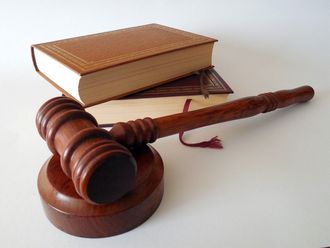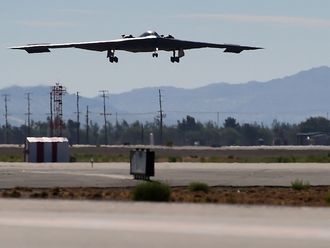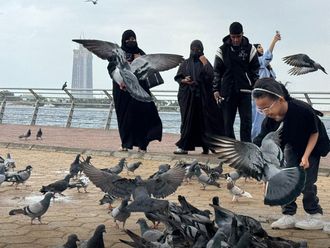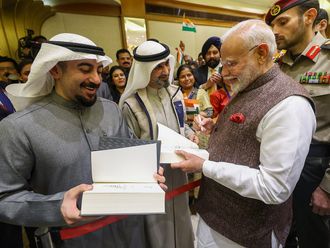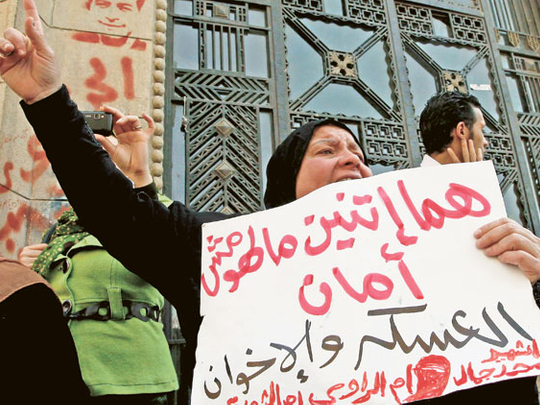
Dubai: The Muslim Brotherhood, which has achieved big political gains in Egypt in the past few months, is facing a new predicament.
Its members are stuck between the euphoria of their overwhelming victory in recent elections — which has made them raise the ceiling of political demands — and the reality that they have only limited authority in parliament, which is costing them their support base.
As a result they are fighting on several fronts, including with the ruling Military Council, raising tension in a country already beset with instability a year after the regime of Hosni Mubarak was toppled, political experts say.
"I believe a state of illusion is controlling the Muslim Brotherhood, and is pushing them to speed up [their efforts] to achieve more gains and be in command in Egypt," said Jamal Abdul Jawad, political science professor at the American University of Cairo.
Such status became so influential, "to the extent they became unable to notice that they are not alone in Egypt and there are limits to power", Abdul Jawad, who is also an advisor with the Cairo-based Al Ahram Strategic Studies Centre, added.
Politically powerful
The Brotherhood, established 84 years ago, emerged from the revolution as the most powerful political group in Egypt, capturing nearly half of the 498 seats for elected members (ten seats for figures usually appointed by the president were this time around selected by the Military Council). An alliance of ultra-conservative Islamists won the second largest number of seats, with nearly 25 per cent.
Islamists also have the strongest hand in writing the country's charter. They have another majority in the 100-member panel tasked with drafting a new constitution, which will determine the balance of power between parliament and president and define the future role of religion and minority rights.
The gains raised fears among Egyptians about the political intentions of the Brotherhood, concerns further consolidated by the announcement that the party is considering fielding a candidate in next month's presidential elections, despite previously stating they would not be part of that process.
Their decision, which is yet to be announced, is expected to signal which path the Brotherhood's relations with other political powers will take.
While some analysts believe the Brotherhood, with its recent decisions and actions, is heading towards "political suicide", others disagree.
Abdul Jawad believes the situation is yet to reach the point of no return.
The Brotherhood still has the chance to "correct their decisions and avert the catastrophe, because the suicide of a group like the Brotherhood will be costly for everybody in the Egyptian society", Abdul Jawad said.
"Yet there are no signs they are backing off, or are willing to correct [things]."
Increased demands
However, Omar Ashour, Director of the Middle East Politics Graduate Studies programme at the University of Exeter and a visiting fellow at the Brookings Doha Centre, told Gulf News in an interview from Cairo that the Brotherhood raised the ceiling of their political demands "after they gradually found out that [parliament's] powers are limited".
After the Islamists moved their pressure from the streets to parliament, they realised the weakness of the its authority in the decision making process, which is "embarrassing" the group among its support base.
"Recently, two crises erupted in Egypt," Ashour said.
"The first is a parliament crisis. There is a general feeling that the parliament is very weak and doesn't meet the [people's] expectations.
"This embarrasses the Brotherhood in their bases and among those who voted for them from outside the group because of their strong beliefs that the group is clean and not corrupt."
The second crisis erupted, according to Ashour, when the panel charged with drafting the new constitution was put together without a clear criteria and didn't include representatives from across the political spectrum. Instead it was dominated by Islamists.
Nearly 25 figures, mostly liberal and secular-minded members, have since withdrawn in protest, saying the committee does not reflect the diversity of Egyptian society.
"The Brotherhood seeks real powers," Ashour said.
"True, the parliament is an elected body, but it doesn't have real powers. This is where the idea of pressuring for nominating a presidential candidate came from."
Meanwhile, the Brotherhood's popularity has decreased, with many supporters reviewing their position regarding the group which was oppressed for decades, analysts say.
Nothing positive
"There is a perception among the Egyptians that they [Islamists] are in power, but nothing has changed on the ground," Ashour said.
"The economy has not improved, and the security situation is not getting better, and no positive developments were felt by the ordinary [man]."
For weeks, the Brotherhood has been pressing the Military Council to sack the current government headed by Kamal Al Ganzouri, arguing that its poor performance is harming the group's image on the street.
The Brotherhood said in a statement that the military's insistence on backing the government means it intends to rig the presidential election,
The military has rejected demands to sack the government, and last week Monday "issued a veiled threat of a crackdown on the Muslim Brotherhood", according to an AP report.
However, a press report quoted "some observers" as saying tension between the Brotherhood and the Military Council was a smoke screen to conceal a deal to split power between the two.
"An agreement between the two is not ruled out. But in the current circumstances, I see there is a real state of tension," Ashour said.
"The struggle between the two will be even more difficult in the coming period", with the end of the transitional period nearing.




